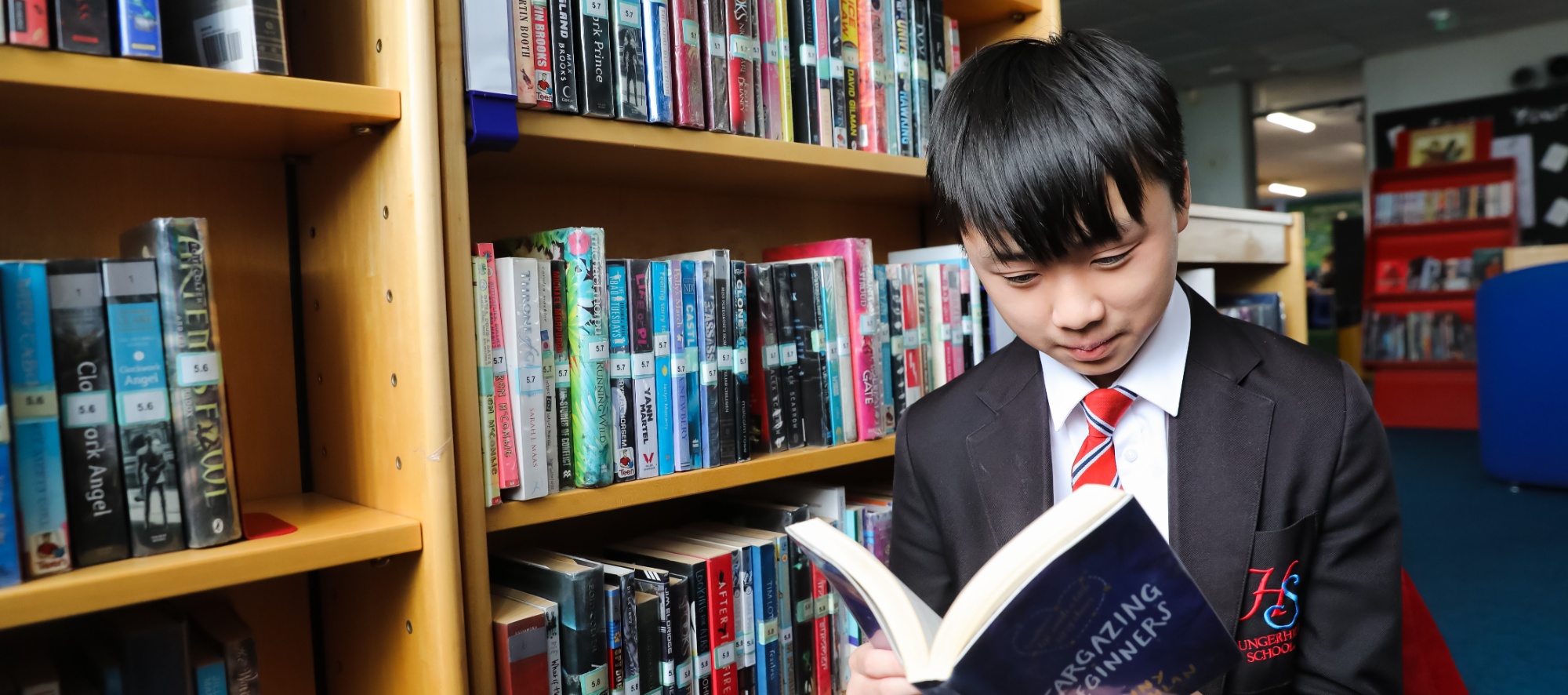Citizenship
KS3 CitizenshipCitizenship is a core subject for both year 7 and year 8 and is taught for one lesson per fortnight. We follow the topical Votes For Schools program to ensure students are kept up to date with challenging current affairs and important debates. Votes For Schools is a voting platform for young people that strikes to make a difference within school, the local community and the wider world. Students have the opportunity to vote each lesson on a topical issue. This vote is recorded, allowing students to make their voices heard. Key stakeholders from government, charities, professional bodies and expert organisations are able to comment and offer feedback. This highlights the importance of being informed, curious and that our students can make a difference. Using this format can empower our young people. It gives our students the impartial information required to make informed decisions and the opportunity to voice their opinions on relevant and challenging issues. Our citizenship lessons help to develop skills and confidence in oracy, debating, political literary and participation, as we incorporate the oracy debate model within our lessons. |
Miss A Mack Curriculum Leader |
GCSE Citizenship Studies (AQA) – core subject
The principal aim of Citizenship education is to engage pupils in the local and global world; to consider their role as global citizens and to think critically but proactively about a politicized environment. This course encourages students to play an active part in public and democratic life as informed and active citizens. The course focuses on the importance of active citizenship so students can engage with topics close to their hearts while they develop skills in research and investigation, problem-solving, advocacy and campaigning. Citizenship Studies at GCSE reflects current issues, questions and debates; and therefore students develop knowledge and understanding of the role of citizenship in relation to the political and democratic issues and discourse that impacts on modern society.
The GCSE Course in Citizenship Studies has the power to motivate and enable young people to become thoughtful, active citizens. Through the course, students will gain a deeper knowledge of democracy, government and law and develop skills to create sustained and reasoned arguments, present various viewpoints and plan practical citizenship actions to benefit society.
Course content summary:
There are four main components to the course:
• Life in Modern Britain
• Rights and Responsibilities
• Politics and Participation
• Active Citizenship
Life in Modern Britain
- What are the principles and values that underpin British society?
- What do we mean by identity?
- What is the role of the media and the free press?
- What is the UK's role in key international organizations?
- How can citizens make their voice heard and make a difference in society?
Rights and Responsibilities
- What laws does a society require and why?
- What are a citizen's rights and responsibilities within the legal system?
- How has the law developed over time, and how does the law protect the citizen and deal with criminals?
- What are the universal human rights, and how do we protect them?
- How do citizens play a part to bring about change in the legal system?
Politics and Participation
- Where does political power reside in the UK, and how is it controlled?
- What are the powers of local and devolved government, and how can citizens participate?
- Where does political power reside: with the citizen, parliament, or government?
- How do others govern themselves?
- How can citizens try to bring about political change?
Active Citizenship
- Citizenship action – the actions of others
- The investigation: taking citizenship action
- Stage 1: Deciding the question or issue
- Stage 2: Carrying out the initial research
- Stage 3: Planning the action
- Stage 4: Taking the action
- Stage 5: Assessing the impact of the action
- Stage 6: Evaluating the whole process
How is GCSE Citizenship Studies assessed?
There are two examination papers, both worth 50% of the final grade. Both last 1 hour 45 minutes.
Paper 1:
• Section A: Active citizenship questions: questions on the citizenship action of others and questions on the students taking citizenship action investigation
• Section B: Politics and participation question
Paper 2:
• Section A: Life in Modern Britain questions
• Section B: Rights and Responsibilities questions
Both papers use the following question types: multiple-choice, short answer, source-based questions, extended answer (essay) questions.
Where can this qualification lead?
Citizenship Studies complements GCSE History, GCSE English and GCSE Geography.
It can lead to the study of these GCSE subjects at A Level as well as being an excellent pathway for the study of A Level Politics, Sociology and/or Law.
It is a good springboard for careers in the police, legal profession, media, civil service, teaching and politics.
Citizenship Curriculum Intent
‘The highest result of education is tolerance’ – Helen Keller
Democracies need engaged and informed citizens who contribute to the political process and take responsibility for their own community; we need people who are tolerant and respectful of others when participating in public life.
GCSE Citizenship Studies has the power to motivate and enable young people to become thoughtful and active citizens. Students gain a deeper knowledge of democracy, government and law, and develop skills to create sustained and reasoned arguments, present various viewpoints and plan practical citizenship actions to benefit society. They will also gain the ability to recognise bias, critically evaluate argument, weigh evidence, and look for alternative interpretations and sources of evidence, all of which are essential skills valued by higher education and employers.
Our curriculum will:
Develop the character of all students
- Students will be exposed to the most important ideas, issues and legalities that will affect them during their lives. They will develop knowledge, skills and understanding to prepare them to play a full and active part in society.
- Students will be challenged with an aspirational curriculum and be expected to strive for excellence every lesson.
- Students will develop Hungerhill school’s core values through the course and see how they link with the British Values
- Students will have a firm understanding and appreciation of the way their country works regarding politics and British Values
- Students will become resilient learners through formative and summative assessment; target work and encouraged to develop a growth mindset.
Ensure all students are literate and numerate
- A love of reading will be promoted through the curriculum by reading challenging and interesting texts; often through news articles.
- Pupils will confidently articulate justified opinions on debates/ issues covered within the classroom e.g. Should we have a free press? Should the voting age be lowered?
Build knowledge and aspirations of all students
- The course develops awareness and understanding of democracy, government and how laws are made and upheld.
- The curriculum progresses to build upon skills and knowledge studied previously. Verbal and written skills from KS3 English lessons will be build upon to achieve more critical thinking within debates.
- Lessons are sequenced in blocks of learning and begin with ‘Life in Modern Britain’ so students can use this terminology to build a foundation for the modules that follow.
- ‘Politics and participation’ will be studied in year 10 when students are closer to voting age and have the maturity to understand some of the more challenging concepts faced within the curriculum
- Retrieval practice is heavily embedded and forms part of the daily diet using retrieval grids, do now activities and low stakes quizzes.
- The ‘Active Citizenship’ module will be completed in year 10 where students will plan and undertake an investigation into a current issue faced locally, nationally, or internationally.
Students will hone research skills as they delve into an issue of their choice; developing rich information as an informed citizen. They will already have built skills in other subjects, such as English language, digital media and maths, which will be necessary to complete their projects.
- Studying Citizenship will enable students to apply critical-thinking and problem-solving
Ensure all students have the secure foundations to progress into further education and employment
- Life in modern Britain, looks at the make-up and dynamics of contemporary society, what it means to be British, as well as the role of the media and the UK’s role on the world stage – links to employers will be clear through discussions of workplace rights.
- Rights and responsibilities will give students the working knowledge that they will need to understand workplace laws regarding discrimination, equal pay etc. as well as obeying the law and being aware of their legal rights within the UK.
- Skills are taught which are important for further education and/ or the workplace e.g. tolerance, respect, debating skills, organisation and kindness towards other – as well as research skills and advocacy.
Develop cultural capital of all students
- Students will have lots of opportunities to debate.
- Students will have the chance to explore a variety of viewpoints and learn how to form their own opinions based on factual evidence.
- Students will explore legal cases and the consequences of unlawful actions
- Real world scenarios are used throughout the course to discuss workplace laws, UK politics and modern Britain e.g. GMB and free speech; Windrush generation.
- Students will be exposed to local, regional, national and global case studies – giving them a wider context in which to critically analyse citizenship issues.


